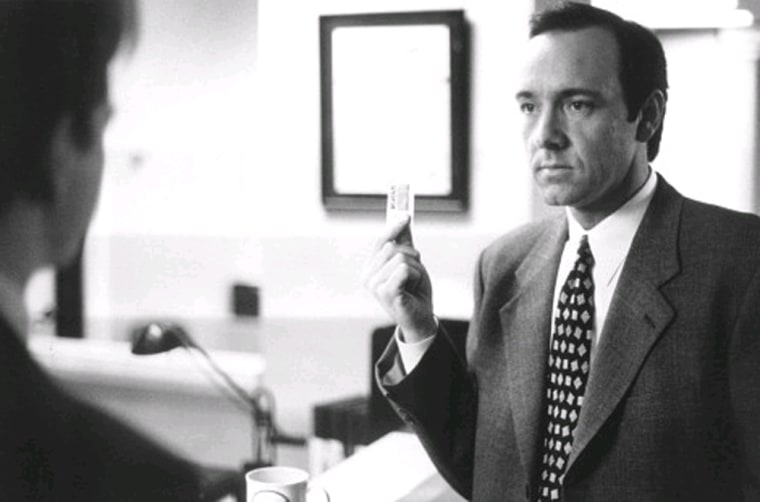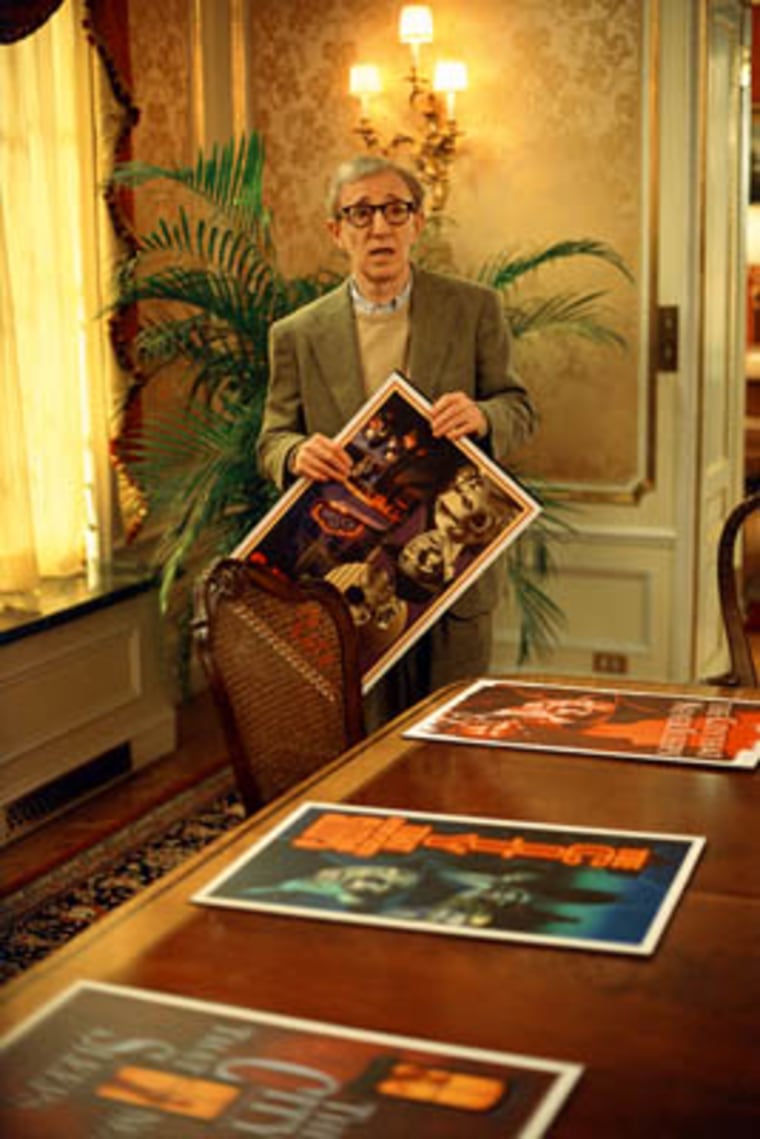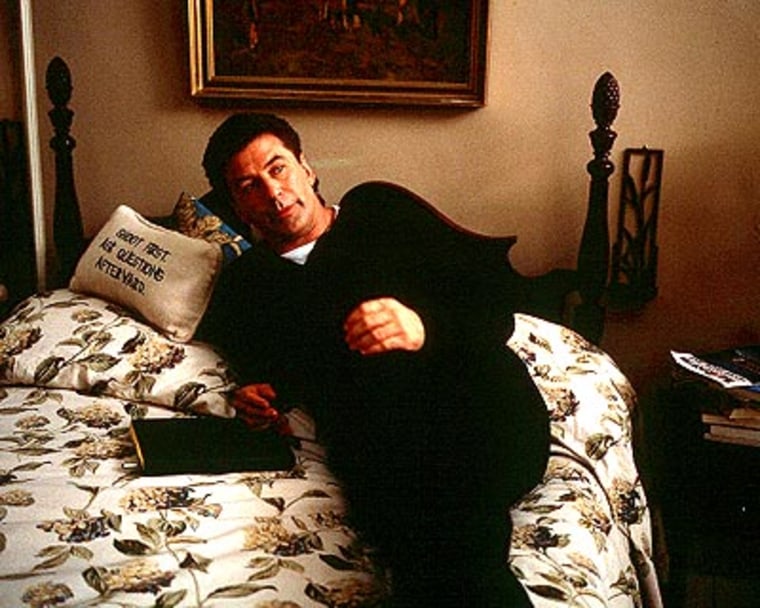If writers write what they know, filmmakers often film what they know — “Slave Girls from Beyond Infinity” included. Spend enough time in the business and you want to say something about the business. It’s why some of the best movies are about movie-making: “Singin’ in the Rain,” “Sunset Blvd.” and “Day for Night.”
Surprisingly, for all the change in the industry over the years — the death of the studio system, the rise of television, then independent directors, then blockbusters, then video games — screen performances of moviemakers have remained remarkably consistent. Producers are relentless jerks. Directors are even-keeled. Writers are hacks. For this article I’ll ignore the biopics (“Chaplin”), and stick with the fiction, where it’s easier to tell the truth. No theater people (“All About Eve”) or TV people (“Tootsie”) allowed. Just movie people. This is Hollywood’s often unpleasant look at itself through its principle players. Along the way we’ll see if we can’t assemble a dream team of fictional filmmakers.
The Studio Executive
Generally confused with the producer, the studio exec is the person other people — including the producer — pitch to make their movie. Usually he’s portrayed as a dispassionate businessman. Tim Robbins as Griffin Mill in “The Player” is the quintessential studio exec, but other examples include Walter Pidegeon doing Kirk Douglas’ bidding in “The Bad and the Beautiful,” Robert De Niro channeling Irving Thalberg in “The Last Tycoon,” and Treat Williams as yet another L.A. guy stealing another of Woody Allen’s girls in “Hollywood Ending.”
What do they have in common? They’re blank. There’s no there there. That’s the point David Kahane makes to Griffin Mill: “I can write. What can you do?” Of course the rest of the movie shows us exactly what Mill can do. He can plot, scheme, lie and sell, which means he can’t help but become successful in America, while the writer, who can only write, winds up dead in six inches of stagnant water. Studio executives are smart. Despite unrelenting egos, they never — “The Player” is the exception — make the studio exec the leading man. Because no one is rooting for the studio executive.

My favorite performance, though, is not of the blank variety but someone over-the-top. Although Kevin Spacey’s malicious Buddy Ackerman in “Swimming with Sharks” is tempting, I’m going with Michael Lerner joyous Jack Lipnick in “Barton Fink.” Instead of dispassion, he’s got outsized passions. One day he’s literally kissing Barton’s shoe as a sign of subservience to Great Art; the next day he’s telling him he’s through in the business. “I am bigger and meaner and louder than any other kike in this town,” he says. Funnier, too. Coffee?
The Producer
More producers die in these movies than anyone else. I’m not sure whose fantasy this is. Jack Palance crashes his car at the end of “Contempt,” Saul Rubinek, the producer of “Body Bags,” winds up in a body bag in “True Romance,” Michelle Forbes is plugged (unbelievably, I’m afraid) by her former lover in “Swimming with Sharks,” and Dustin Hoffman is led away muttering at the end of “Wag the Dog.” Someone’s got it in for these guys.
At the same time, like Milton’s Satan, they tend to be the most fascinating characters with the best lines. They are contemptuous of others because they know what it takes to push things through, and they know most people don’t have what it takes to push things through. Remember that “Star Trek” episode where the transporter split Capt. Kirk into two entities, a good one and a bad one, and the good one couldn’t make a decision without the bad one? The bad one is the movie producer. He’s also the “Bad” in “The Bad and the Beautiful.” “You stole my idea!” director Fred Amiel (Barry Sullivan) tells producer Jonathan Shields (Kirk Douglas). “Without me,” Shields replies with barely-veiled contempt, “it would’ve stayed an idea.”
Only once has the producer been the hero — Chili Palmer in “Get Shorty” — and first they had to make him likeable by making him a mobster. Think about that. Only once did a producer talk about trying to stay out of the way — and that was in France. In Hollywood, most of these guys are foul-mouthed jerks, and almost always portrayed as Jewish. The worst take themselves too seriously (Rubinek’s brilliantly profane Lee Donowitz), while the best know it’s always business, it’s never personal. In “State and Main,” Marty Rossen (David Paymer) is on the phone threatening the agent of an actress who wants $800,000 to bare her breasts: “I'm going to rip your heart out, then I'm going to piss on your lungs through the hole in your chest!” Beat. “And the best to Marion.”
My favorite — in a very crowded field — is Stanley Motss from “Wag the Dog,” whom Dustin Hoffman supposedly based upon “Godfather” producer Robert Evans. At one point singer Johnny Dean (Willie Nelson) is struggling to write a song to accompany the war with Albania, and complains that nothing rhymes with Albania.
Stanley: What are you looking at me for? It’s the name of the country. Johnny (strumming and singing): Albania...Albania... Stanley (encouraging): That rhymes.
The Director
While one of the most memorable fictional directors is a wayward idealist — John L. Sullivan in “Sullivan’s Travels” — most directors in movies are pragmatists. They are the calm centers of storms they’ve created. Ferrand (Francois Truffaut) put it simply in “Day for Night”: “What is a film director? Someone who’s asked questions about everything. Sometimes he knows the answers.” It was the same for Guido in Fellini’s “8 1/2”; unfortunately he didn’t have the answer to the most basic question a director can ask himself: What do I want to say? But “I wanted to say it all the same.”

The opposite of calm, deaf Ferrand is Peter O’Toole’s god-like Eli Cross in “The Stunt Man.” No calm there. He churns the waters. While Ferrand uses events in the lives of his actors to create a better film, Eli manipulates the lives of his actors for his film. Anything to get a better performance. His type is still seen today in, say, Oliver Stone, but most fictional directors, like their real-life counterparts, have gotten smaller since the 1970s. Instead of thundering men coming down from on high we have Kevin Bacon trying to make his cabin picture in “The Big Picture,” Steve Buscemi trying to film one simple shot in “Living in Oblivion,” and William H. Macy filming “The Old Mill” without the old mill in “State and Main.” Woody Allen has gone from the grand, Fellini-esque Sandy Bates in “Stardust Memories” to the small, psychosomatically blind Val Waxman in “Hollywood Ending.” For all of these directors, getting the girl has become as important as getting the picture.
That’s why I choose the director from “The Bad and the Beautiful” — and I don’t mean Fred Amiel. The guy I want is the guy Jonathan Shields betrayed Amiel for — the perfectly named Von Ellstein, played, with class, and accent intact, by the Estonian character actor Ivan Triesault. In a scene reminiscent of David O. Selznick taking the directing reigns from King Vidor on the set of “Duel in the Sun,” Shields berates Von Ellstein:
Shields: You call that directing?... Why there’s values and dimensions in that scene you haven’t begun to hit! Von Ellstein: Perhaps they’re not the values and dimensions I wish to hit. I could make the scene a climax. I could make every scene in this picture a climax. If I did I would be a bad director. And I like to think of myself as one of the best.
He winds up walking off the set. Not in a huff but with a bon mot. Always the way to go.
The Screenwriter
Screenwriters, poor bastards, start out compromised. They’re in Hollywood aren’t they? That means they’ve already traded something called “artistic control” for something called “money.” I would argue that it’s not a bad trade-off, since most writers get neither in their lifetime, but this neutered, compromised screenwriter is still the standard. Hence William Holden’s kept man, Joe Gillis, in “Sunset Blvd.,” and hence the cuckolded writers of “The Bad and the Beautiful” and “Contempt,” and hence Alan Garfield as Sam in “The Stunt Man” having his best scenes trod upon, and hence John Mahoney’s drunk William Faulkner-esque turn in “Barton Fink.” These are the best of fictional screenwriters and they lack all conviction; the worst, meanwhile, are full of passionate intensity. You get the feeling that David Kahane sucks even before his girlfriend says so at his funeral: “I always suspected he was uniquely untalented,” she says. It’s a horrible eulogy, but not half as bad as the one Kahane’s writer-friend is delivering, which is just as bad as Barton Fink’s love of the common man and postcard endings.
Me? I choose Philip Seymour Hoffman’s Joe White in “State and Main.” He may be naive. He may compromise his talent. He may be weak. But his mind is open.
The Actor
Actors may start out desperate and struggling (see Michael Rappaport’s Dick Ritchie in “True Romance”), but once they get a taste of fame they turn pompous and vain. Gene Kelly’s Don Lockwood is the model. Recently, James LeGros gave us a puffed-up star-in-the-making (rumored to be Brad Pitt) in “Living in Oblivion,” while Danny DeVito’s titular Martin Weir was hilariously solipsistic in “Get Shorty.” (His off-hand greetings, as he makes his way to lunch, assure the respondent that, yes, they are happier to see him than he them.) Then there’s Alec Baldwin and his hobbies in “State and Main.” Something gloriously off about his character.
To get my actor, I’m going overseas: Jean-Pierre Aumont’s Alexandre in “Day for Night.” The most mature man on his set.
The Actress
Ah, choosing a leading lady. Every man’s dream. Having beautiful women parade before you and ask, “Where do you want me?” Cough.

If actors start out desperate, actresses wind up that way. Sure, young actresses struggle (Veronica Lake’s tough gal in “Sullivan’s Travels”; Teri Hatcher’s manipulative Gretchen in “The Big Picture”; Catherine Keener’s doubtful Nicole in “Living in Oblivion”), but older actresses struggle more. Time has no casting couch. Think Severine with her drinking habit in “Day for Night,” and the many older actresses in “8 1/2,” as well as the most famous fictional actress of all, Norma Desmond, always ready for her close-up. But even stardom has its struggles, and they’re usually played for laughs: Jean Hagen’s shrill Lina Lamont in “Singin’ in the Rain,” and Sarah Jessica Parker’s Claire in “State and Main.” Why does Claire bond with her character? Parker’s line-reading is wonderful: “She works with animals. She has a home.”
Few actresses, though, have been as lovely as Julie (Jacqueline Bisset) in “Day for Night.” That’s my leading lady.
The film
And that’s our film. It stars Julie and Alexandre. It’s written by Joseph White and directed by Von Ellstein. Stanley Motss to produce for Lipnick Studios. We hope it won’t suck.
Most Hollywood movies-about-movies are cynical affairs about the clash between art and commerce. Truffaut’s “Day for Night” offers a different lesson: The simple camaraderie of filmmaking. The joy of doing something you enjoy. “What a funny life we lead,” says Severine. “We meet, we work together, we love each other. And then, as soon as we grasp something, it’s gone. See?”